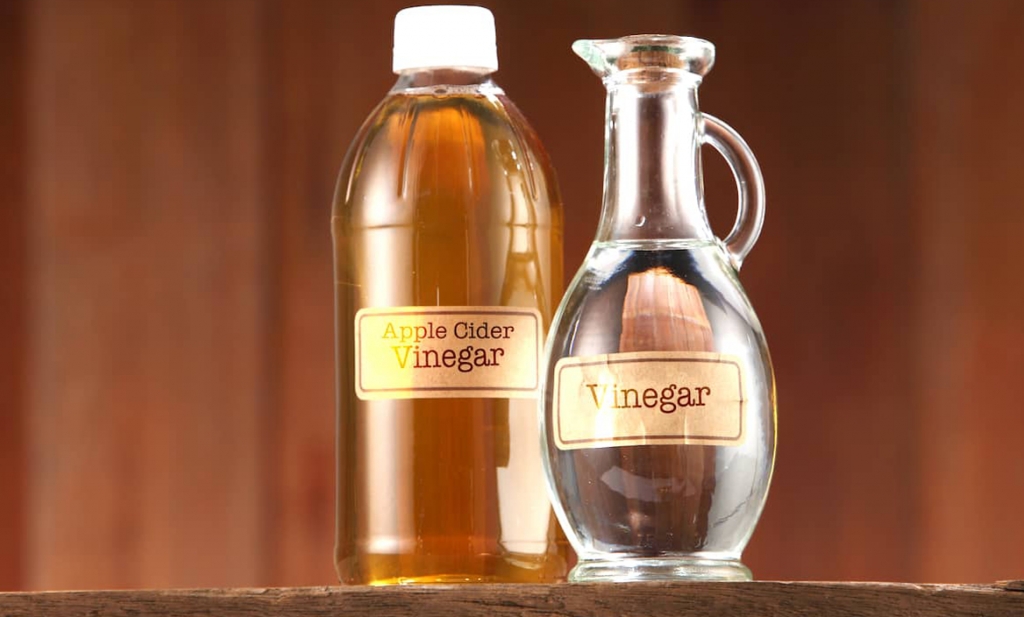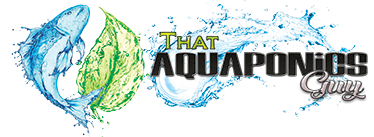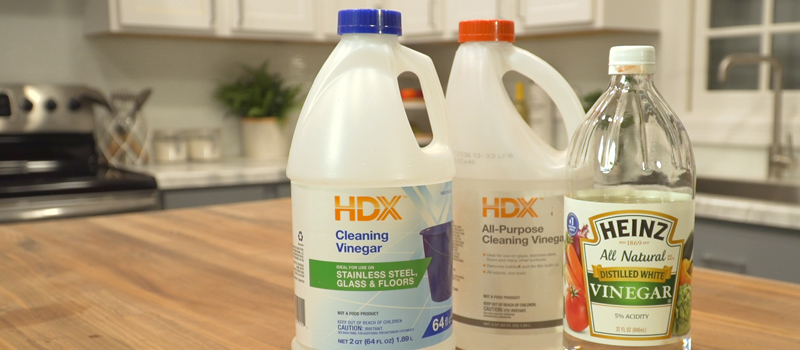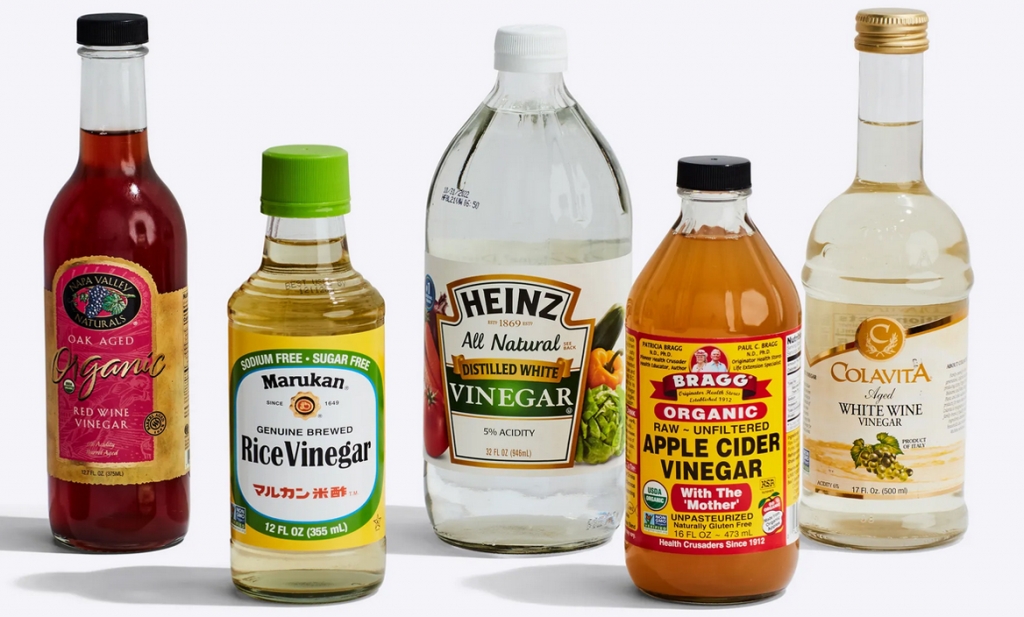There are very few substances that we can get without any government interference that can be used as widely and for the desired effects as we can with Vinegar. Vinegar is one of those items that has so many uses around the household that we should keep larger quantities of it at all times. A staple of the pantry for a few  centuries, vinegar is commonly used for cleaning, cooking, getting rid of odors, and so many other things. In fact, vinegar has so many different uses that we wanted to get you the most useful Vinegar Hacks we could and we have it all detailed below.
centuries, vinegar is commonly used for cleaning, cooking, getting rid of odors, and so many other things. In fact, vinegar has so many different uses that we wanted to get you the most useful Vinegar Hacks we could and we have it all detailed below.
Of the two main types of vinegar, White Vinegar and Apple Cider Vinegar have their equal applications. General rule to follow is that you would use White Vinegar in those cases where you won’t be directly ingesting it for the desired effects. Rather, if it be the case that you will drink it in some form the Apple Cider Vinegar is recommended.
Here are just 45 of the many Life Hack uses for vinegar that will encourage you to add it to your grocer list today.
Cleaning and Sanitizing Surfaces
The best thing about vinegar is that it can be used on any surface without fearing it may damage it. Since vinegar is antibacterial and kills many bacteria on contact, it is an excellent option for quickly sanitizing items before use. Exempt that from medicinal tools lie scalpels and scissors, you can use rubbing alcohol for that.
Preventing Bacteria Growth
Vinegar can kill microorganisms such as bacteria and viruses. Due to its antimicrobial properties, vinegar has been used to treat ear infections, warts, and nail fungus, among other things. It has also been used to treat certain skin infections and burns. Vinegar is a multipurpose product that should be placed in any medical kit.
Disinfecting Your Cutting Board
Cutting boards can be home to a plethora of bacteria when you use them for splicing and dicing of raw meat, and without the proper sanitation, that bacteria can end up wreaking havoc on your body via food poisoning. Clean and sanitize cutting boards using vinegar to kill bacteria and keep your family safe.
Sanitizing Jars And Containers
Food storage is vital to being self reliant, and having containers and jars that are clean and sanitary is vital to safely and timely preserve your food. Use vinegar to safely clean and sanitize jars that will be used to store prepared or pickling foods.
Cut the Grease – Scrub For Pots And Pans
Before Palmolive a well-known household Life Hack that came in handy was the use of vinegar to create a scrub for pots and pans. They would combine equal parts salt and flour with just enough vinegar to create a paste. You rub this paste over any cookware or utensils, rinse with warm water, and dry thoroughly with a soft dishtowel.
Disinfecting Your Toilet
Toilets are toilets and if you can’t get your hands on toilet bowl cleaner, vinegar works the same way and gives you a clean bowl free of harmful bacteria buildup.
Sanitizing The Toothbrush Holder
Vinegar is so safe that it can be used on or around objects that will go into your mouth. Not too many people are aware that the toothbrush holder is ripe with bacteria flying around the bathroom and vinegar is a safe way to keep it sanitized.
Removing The Smell Of Smoke And Other Odors
Vinegar is a safe substance to assist your efforts to keep the smells away. Before products like Febreeze came along, this was used to combat odors and freshen up fabrics.This was done by diluting vinegar in water and spraying it on fabrics to freshen them and remove odors. Going from musky to a vinegar smell may not be too appealing so you can also add a splash of fabric softener or essential oils to create a more pleasant experience in your living room.
Freshening Up The Air
Air fresheners can have a rest as well, when you mix vinegar and water in a spray bottle and adding in fabric softener or essential oils can help keep any space smelling fresh.
Purifying The Air
Vinegar will not only freshen the air, but it will also kill any floating bacteria, therefore purifying the air in your home.
Getting Rid of Stains – Hard Water and More
Now, this Household Life Hack can be used when Bleach is too strong or you don’t want to totally draw the color out of a piece of fabric. Vinegar is a great way to take stains out of shirts (sweat stains anyone?), remove stains from carpets, and a host of any other fabrics you want to continue to use around the house and wear outside. To use vinegar to remove stains, simply soak the item in vinegar for 15 minutes to a few hours (depending on the strength of the stain). Then wash with a laundry booster added to the washing machine.
Hard water can wreak havoc on all surfaces and is quite difficult to remove. You can use vinegar to remove hard water stains from plastic and bring containers you want to use back to life. Increase their use for things like food storage or your Apothecary toolkit.
Removing Pesky Pet Odors
We’ve mentioned how vinegar can be used to reduce and eliminate odors all over your home. Pet odors is another way to use that vinegar in your cabinet. They are one of those smells that are difficult to get rid of, but vinegar works great for lifting the smell and reviving the area. Spray on affected surfaces, and/or in the air and scrub the area clean of whatever animal had done their nasty business.
Using Vinegar In The Washing Machine
Using white vinegar in the washing machine helps to remove hard water build-up, mildew, or mold in the components of the machine itself. It also makes clothes come out brighter, cleaner, and stain-free.
Eliminating Bacteria And Freshening Fabrics
Vinegar is an excellent tool for freshening fabrics and removing odors. Beyond the rugs and the couches, chairs and sofas in your front room, you can use this for blankets, quilts, and shams. Any type of fabric (besides leather) that has been used in the past and in the present can have your special vinegar solution that kills the resident bacteria, and provides a new fresh scent in it’s place. Just mix water, vinegar and a few dabs of your favorite essential oils (or terpenes).
Eradicates Mildew
Wherever you may find it in your home, your bathroom, kitchen, garage, etc that has a build-up of mildew, you can reach for a bottle of vinegar. Natural choice for getting rid of the mildew buildup on your household surfaces.
Fights Mold
As with mildew, vinegar can also be used to reduce and remove several types of mold. The key is to notice and clean the area surface as soon as you see it, so that the spores do not work themselves deeper into the walls, or materials you wish to be mold free. As an extra precaution, make sure you wear a simple dust face mask to keep the freeborn spores away from your precious lungs.
Killing Unwanted Weeds
When it comes to growing things outdoors, there are those types of plants that are noxious and unwanted. Where we live it seems cheat grass is every where. For those unwanted weeds, use a mixture of vinegar and dish soap to kill them where they sprout in the garden and grow healthier plants.
Be aware the acid found in vinegar can kill other plants and weeds and should be applied as directly as possible.
Getting Rid Of Moss
If you live in an area that is overgrown with moss, and aren’t using it for other purposes (dried out it is a great natural fire starter) you can use vinegar to kill it. Combine 1 tbsp of white vinegar with 1 gallon of water and spray the mixture on mossy areas of the garden, carefully saturating the top layer. Repeat daily until the moss dies.
Eliminating That Pesky Ant Colony
Vinegar can help you combat an ant problem, indoors or out. Mix white vinegar with water and spray it on areas that are infested. You can also spray the mixture directly on the anthill to quickly eliminate this pests.
Deterring Those Garden Pests
If you have ever had a garden, you know how annoying garden pests can get to your plants and do some good damage. Vinegar repels various garden pests and is safe enough to use in the soil surrounding your garden at a safe distance from the plants to rid yourself of everything from snails and slugs to aphids and ants.
Trapping Those Annoying Fruit Flies
It almost never fails that when you are keeping your bushel of apples, or pears, or any other type of fruit handy in your pantry those iddy-biddy fruit flies come along. Another Household Life Hack is to add a small drop of dish soap to a dish and top with some Apple Cider Vinegar. Next, cover the mixture with plastic wrap with holes poked in it and leave it out to trap fruit flies easily.
Stop Car Windows From Frosting Over
It’s commonplace in the winter month to have to scrap that layer of frost or ice off your car’s windshield and windows before you can go anywhere. However by regularly applying a heavy vinegar water mixture, you can speed up the annoying wait for the defrost in your car to clear that frost. Vinegar can quickly clear frost from windows when it’s cold because it will not freeze and does not leave streaks on the window.
Scale Fish With Less Effort
One interesting use for vinegar is in scaling fish. You never would think that it would but vinegar works to loosen the scales of the fish making them easier to remove for food prep.
Dissolving of Glue
Vinegar has many properties for uses. One of these properties is loosening and removing tough glue from any surface. Depending on the surface, type, and amount of glue to remove, you will soak the area with white vinegar and wait for it to loosen.
Vinegar is an excellent tool for removing wood glue and wallpaper glue. It also works to strip glue residue from glass, loosens removes glue on plastic and many other types of adhesive on various surfaces around the home.
Removing of Stubborn Stickers
This is another Life Hack Tip. Stubborn stickers can be removed using vinegar. This tip can come in handy when acquiring containers secondhand and need to relabel them.
Unclogging of Drains
Combine baking soda and vinegar to unclog a plugged drain and watch the chemical action eat through the clog and not through the pipes.
Making Paint Stick To Cement
It can be a real pain to have outdoor paint stick to the chosen cement surface. The paint doesn’t naturally adhere to the surface and always winds up peeling rather quickly. If you wash the area with vinegar before painting it, it will stick better and last longer.
Improving the Lifespan of a Lantern Wick
Here’s an oldie but a goodie Household Life Hack. Oil lanterns are a must-have in case of any emergency long or short. Historically, oil lanterns often flicker and fade as they burn. You can prevent this by soaking the wicks of lanterns in vinegar to help preserve them and make them more absorbent of the oil.
 Cleaning of Wounds
Cleaning of Wounds
Beyond Isopropyl or rubbing alcohol, and disinfectants like Neosporin, a good natural method that is close at hand in the home for clearing out wounds is Vinegar. It kills bacterial pathogens and contains acetic acid, which works the same way antiseptics do. These properties make vinegar perfect for cleaning and disinfecting cuts and wounds in a pinch.
Managing Diabetes Through Diet
Vinegar, particularly Apple Cider Vinegar, has been shown in studies to help lower blood sugar after meals when 20ml is diluted in 40ml of water. You can also use it to help moderate blood sugar just after waking up from a full night’s sleep.
Soothing Bug Bites
Dabbing vinegar on nearly any kind of a bug bite will reduce swelling and ease soreness around the site. Gnats, flies, bed bugs, mosquitos etc. For those that may be from a spider, pay close attention to it and seek medical help if the swelling and soreness get worse, not better.
Healing a Sunburn
If you don’t have your Aloe on hand, a well-diluted mixture of Apple Cider Vinegar and water can help ease irritation from sunburn. Apple Cider Vinegar diluted in water can be applied to the affected area using a cloth soaked in the solution, a spray bottle, or by adding it to a cool bath.
Easing Your Sore Throat
While a sore throat will usually subside on its own, vinegar can help provide some relief if one tends to linger longer. Apple Cider Vinegar can kill bacteria, and ease the inflammation associated with a sore throat. Mix diluted Apple Cider Vinegar with honey and drinking the mixture to soothe a sore throat. You can also gargle with it for quick relief.
Reduce Inflammation
For years, people have used the properties of vinegar to reduce swelling. This is done by wrapping a sprained or sore body part in a cloth soaked in vinegar. We soak an Ace Bandage in Apple Cider Vinegar which helps reduce swelling and inflammation.
Supporting Your Digestive Health
Getting the proper digestion from the food you eat is key to a healthy body, yet many people suffer from various digestion issues. If you suspect that you are one of them, take one to two teaspoons of ACV in an 8oz glass of water before eating. It can aid healthy digestion and reduce bloating and heartburn you ay be experiencing.
Soothing Heartburn
Many people swear by the use of vinegar to ease heartburn. Swallowing just a tablespoon of vinegar can quickly provide relief.
Easing An Upset Stomach
If there is no Pepto Bismal laying around, much like treating heartburn, vinegar can also used by many to ease an upset stomach. Drinking a mixture of ACV and water will soothe an upset stomach in seconds.
Treating Dry Skin And Eczema
Now, there are many other natural and effective ways to treat skin conditions. This suggested Life Hack is only there IF you don’t have any other items on hand or if those that you have tried before hasn’t worked, here’s another way you can try. Many people who have suffered from eczema report that ACV provides them some relief. ACV has beta-carotene, which aids in skin cell renewal. It is also rich in potassium, has high concentrations of minerals, and contains lactic acid.
This means ACV has been known to assist in the treating and healing of eczema. To use ACV for eczema, you have a few options:
- Drink it – 1-2 tbsp in an 8 oz glass of water each day.
- Combine it with honey – Combine 2 tbsp ACV with 1 tbsp honey in a glass of water and consume 2-3 times a day with meals.
- Mix it with baking soda – Half a cup of water, ¼ tbsp baking soda, 2 tbsp ACV and drink. You can add 1 tbsp of honey if you wish.
- Use it as a moisturizer – mix 1 tbsp with coconut oil.
- Use it as a toner – Coat a cotton ball and dab it on your face.
- Use it on your hair – Mix with sunflower oil to use on your hair.
- Use it in the bath – Add 2 cups of ACV to a full tub.
Treating Nail Fungus
Since vinegar is known to kill bacteria, molds, mildew it can also take care of fungus, which people can use it to treat nail fungus. To treat nail fungus with vinegar, you simply soak the nail in diluted vinegar a few times a day until the fungus subsides. A mixture of 1-to-1 works best for this treatment.
Getting Rid Of A Wart
If you find yourself with an unwelcome friend, vinegar may be able to help. And we are talking about a wart, not that annoying neighbor across the way. With clean hands, take a cotton ball thoroughly soaked in ACV and apply it to the wart in question, covering it with tape to hold it in place. This treatment works best when it is done before bedtime and removed in the morning. Should only take a few nights for that puppy to slough off.
Softening Callouses
Vinegar can be used to soften calluses when needed. Starting to get those bunions on your feet like your grandma? Nip it in the bud by creating a foot soak by mixing 2 cups of lukewarm water with 1 cup of ACV. Many people also add salt to the mixture as well. Soak the calluses for 20 minutes and then treat them with a pumice stone to remove any hard skin. Pat dry and repeat as needed.
Faster Seeds Germination
Soaking seeds in vinegar aids the germination process by breaking down the seeds’ outer layer faster and encouraging sprouting. If they are a bit older, or seem to have that harder outer shell, plop the into a vinegar solution (3/4 vinegar, 1/4 water) for about a half an hour to 45 minutes and plant.
Cleaning Pesticides off of Produce
Wash your produce in 4 cups of water and 1 cup of vinegar to keep it fresh and pest-free. Soaking fruit in vinegar will also help remove the wax coating on grocery store fruits. Additionally it will also remove any remnant of pesticides that might have been used in the growth process.
Preserving Food Naturally
One of the most common uses for vinegar over the last couple centuries is to preserve food. Preserving food in vinegar means the food will become long-lasting and retain its crisp, flavorful qualities. While most people use plain white vinegar for pickling, ACV can also be used and may enhance the flavor of the preserve.
There are hundreds of pickling recipes available online, and most provide easy-to-follow instructions.
Reviving Vegetables That Have Wilted
Not only can you wash your vegetables in vinegar, but it is also great for giving life to wilted vegetables. To revive wilted veggies, soak them in water with a little bit of vinegar and sugar.
What Have You Used Vinegar For?
How have you put this incredible natural liquid to work for you? How has it worked out when you did? Let us know in the comments below and share with us more uses for Vinegar in your home!


 Cleaning of Wounds
Cleaning of Wounds



